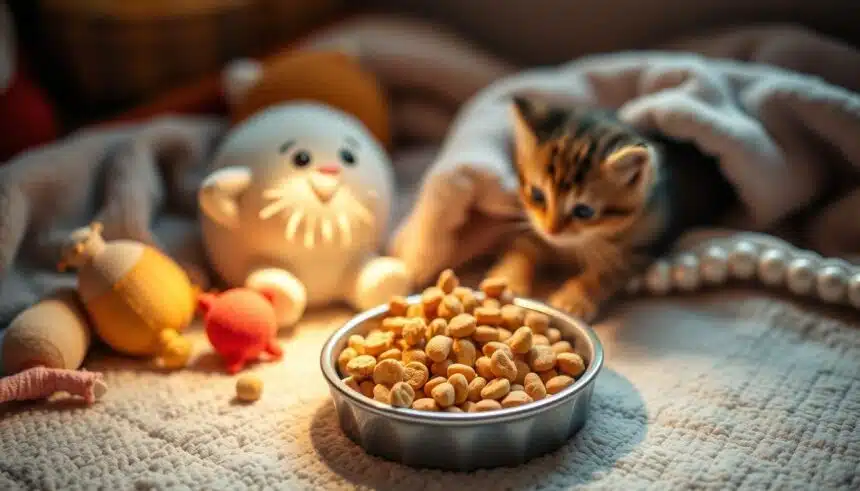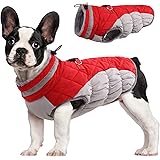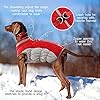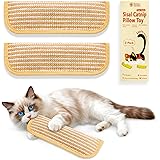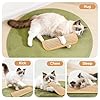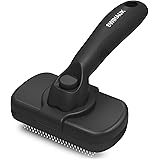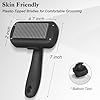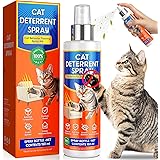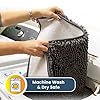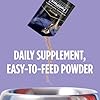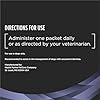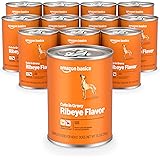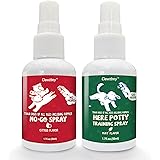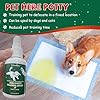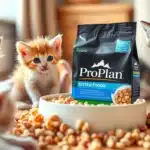Kittens at one month need a balanced diet for growth and development. They should eat food with 35-50% protein. This helps them grow well. Choosing the right food is key.
Kittens grow about 1 pound each month. Their diet is crucial for this growth. With many options, picking the best food can be hard. A good 1 month kitten food gives them the nutrients they need.
Good nutrition is vital for kittens. They need to eat several times a day. This ensures they get all the nutrients they need. For underweight kittens, high-calorie supplements can help.
Choosing the right food is important for their health. It affects their growth and energy.
Key Takeaways
- Choose a well-balanced 1 month kitten food that meets their nutritional needs.
- Look for top rated kitten food for 1 month old with a protein range of 35-50% on a dry matter basis.
- Kittens require several meals a day, usually every 6-8 hours, to meet their nutritional needs.
- High-calorie supplements may be needed for underweight kittens to promote weight gain, energy, and growth.
- Consult with your veterinarian to determine the best food for your kitten.
- Monitor your kitten’s growth and adjust their diet as needed.
Understanding the Nutritional Needs of 1-Month-Old Kittens
A high quality 1 month kitten diet is key for their growth. Kittens need a diet full of protein, fat, and essential nutrients. This diet should support their health and well-being. There are many types of premium kitten food, like wet and dry.
Feeding 1-month-old kittens right is very important. They need a diet rich in calcium, proteins, vitamins, iron, magnesium, and zinc. A balanced diet helps them grow strong and stay healthy. It’s important to choose a diet that meets their specific needs.
Importance of Proper Nutrition
Good nutrition is crucial for 1-month-old kittens. A nutritious diet supports their immune system, digestive health, and growth. Kittens fed well are less likely to get sick or have digestive problems. Premium kitten food is made to give them the best start in life.
Key Nutrients for Growth
For 1-month-old kittens, protein, fat, and carbohydrates are key. These nutrients give energy and support growth. A good diet should have the right mix of these to help kittens grow strong.
Common Dietary Gaps
Some kittens might miss out on important nutrients like calcium and vitamins. A good kitten food should fill these gaps. Premium kitten food is made to ensure kittens get all the nutrients they need for health and growth.
Choosing the Right Kitten Food
Feeding your 1-month-old kitten the right food is key for their growth. A 1 month kitten feeding guide can guide you. The recommended diet for 1 month old kitten should have high-quality protein and whole grains like brown rice or oats.
The best food for 1 month old kitten varies based on breed, size, and activity level. It’s important to pick a food that matches your kitten’s nutritional needs. Here are some tips for choosing the right kitten food:
- Wet vs. dry food: Wet food is often tastier and easier to digest. Dry food helps keep teeth clean.
- Premium brands vs. budget options: Premium foods have better ingredients but cost more. They offer better nutrition for your kitten.
- Ingredients to look for: Choose foods with whole grains, fruits, and vegetables. Avoid fillers like corn or wheat.
By considering these points and using a 1 month kitten feeding guide, you can ensure your kitten gets the nutrients they need to grow and thrive.
| Food Type | Pros | Cons |
|---|---|---|
| Wet Food | Easier to digest, more palatable | More expensive, can be messy |
| Dry Food | Less expensive, helps reduce tartar buildup | Can be harder to digest, less palatable |
Feeding Schedule for 1-Month-Old Kittens
Kittens at one month old need a diet that supports their fast growth. A high quality 1 month kitten diet is key for their health. The best kitten food should have lots of protein, fat, and other important nutrients.
For 1-month-old kittens, a good feeding schedule includes 2-3 meals a day. The size of each meal should match the kitten’s weight and age. It’s important to watch the kitten’s weight and adjust the meals to avoid too much or too little food. A balanced diet is vital for their growth.
Some important things to think about for a 1-month-old kitten’s meals are:
- Having meals often to stop dehydration and diarrhea
- Adjusting meal sizes based on the kitten’s weight and age
- Keeping an eye on the kitten’s weight and changing the meal plan if needed
By sticking to a good feeding schedule and giving a high quality 1 month kitten diet, you can help your kitten grow well. Talk to your vet to find the best feeding plan and food for your 1 month old kitten.
| Age | Feeding Frequency | Portion Size |
|---|---|---|
| 1 month | 2-3 times a day | Adjusted according to weight and age |
Introduction to Solid Foods
At about 4 weeks, kittens start to show interest in solid food. This is the ideal time to introduce nutritious food for 1 month kitten. This food is crucial for their growth and development. Look for premium kitten food for 1 month old that meets AAFCO’s nutritional standards.
A recommended diet for 1 month old kitten should have the right mix of protein, amino acids, minerals, and vitamins. It’s important to introduce solid food slowly. Start by replacing milk with a diet made for growing kittens.
When to Start Transitioning
Kittens can start eating solid food around 4 weeks of age. It’s key to watch their weight gain every day during this time. Make sure they have fresh water in a shallow dish. Replace their food every 3 to 4 hours to keep it fresh.
Recommended Solid Food Options
Some good solid food options for kittens include:
- Canned kitten food, which has about 70% water
- Dry food, with around 10% water
- Wet food, which can be introduced at 4 weeks
Always talk to your vet for advice on introducing solid foods to your kitten.
Hydration Needs for Young Kittens
Keeping young kittens hydrated is key for their health and growth. A good 1 month kitten feeding guide must highlight the need for water. Kittens get water from their mom’s milk until they start eating solid foods. Then, they need fresh water.
Experts say kittens need fresh water with their food. Top rated kitten food for 1 month old usually comes with tips on introducing water. Place a water bowl near the food bowl to help them drink.
Signs of dehydration in kittens include being very tired, sunken eyes, and skin that doesn’t bounce back. To avoid dehydration, watch how much water your kitten drinks. Here are some ways to encourage them:
- Put water bowls in different spots to make them more interesting.
- Try a dripping tap or a cat water fountain for moving water.
- Keep an eye on how much water your kitten drinks and adjust as needed.
By following these tips and using a good 1 month kitten feeding guide, you can keep your kitten healthy. Choose the best food for 1 month old kitten and top rated kitten food for 1 month old for their growth.
Special Dietary Considerations
Feeding a 1-month-old kitten requires special care. They need a diet rich in nutrients for growth. Kittens with allergies or sensitivities need a unique diet. Always consult a vet to find the right food.
Choose a nutritious food that’s easy to digest. Premium kitten food is a good start. But, remember to tailor the diet to your kitten’s needs and health.
Kittens with allergies or sensitivities need special diets. A vet can help pick the best food. It’s also key to watch their weight to avoid overfeeding or underfeeding.
Allergies and Sensitivities
Kittens can develop allergies or sensitivities to food. Signs include skin issues, digestive problems, and ear infections. If you think your kitten has an allergy, see a vet for advice.
Veterinary Guidance
A vet can help create a diet plan for your kitten. They’ll choose the best food based on your kitten’s needs. Regular vet visits are important to check your kitten’s growth and health.
Monitoring Your Kitten’s Weight
It’s key to watch your kitten’s weight to make sure they get the right nutrients from their 1 month kitten food. Kittens usually grow steadily in the first few months. The best food for 1 month old kitten should help them grow well.
Ideal Weight Ranges
Kittens should be weighed every day before they start eating solid food. The right weight for a kitten depends on their age and breed. For instance, a newborn kitten weighs about 100 grams. A 4-week-old kitten should weigh around 500 grams. The top rated kitten food for 1 month old supports healthy growth.
Tracking Growth Progress
It’s important to keep track of your kitten’s growth. You can weigh them daily or weekly, based on their age. If you see big changes in their weight or health, see a vet. For more tips on tracking your kitten’s weight, visit monitoring kitten weight.
By watching your kitten’s weight and giving them the right 1 month kitten food, they can grow into a healthy adult cat. Always talk to a vet if you’re worried about your kitten’s weight or health.
Safe Snacking Options
Choosing the right snacks for your kitten is key. Look for nutritious food for 1 month kitten that’s full of good stuff. Premium kitten food for 1 month old kittens is a top pick. It’s made just for them, with the right mix of protein, fat, and carbs.
Safe snacks for kittens include cooked chicken, fish, and eggs. These are packed with protein and should be given in small amounts. Make sure treats and snacks don’t make up more than 10% of their daily calories.
Healthy Treat Alternatives
- Cooked chicken or turkey
- Steamed fish
- Hard-boiled eggs
- Pumpkin or sweet potatoes
Start with tiny amounts of new snacks to avoid upset stomachs. Always check with your vet before changing your kitten’s diet.
Common Feeding Mistakes to Avoid
Feeding your 1-month-old kitten right is key. You should follow a 1 month kitten feeding guide. This guide should tell you the best food for your kitten’s age and needs.
Some common feeding mistakes to avoid include:
- Overfeeding, which can lead to obesity and other health problems
- Undernourishing, which can cause malnutrition and stunted growth
- Ignoring allergies or sensitivities, which can lead to digestive issues and skin problems
- Relying solely on treats, which can lead to an imbalanced diet
By following a good feeding guide and avoiding these mistakes, you can help your kitten grow well. Choose a high-quality kitten food that is “complete and balanced” to ensure your kitten gets all the nutrients they need.
Always talk to your vet for advice on feeding your kitten. They can help you pick the best food for your 1 month old kitten.
| Age | Feeding Frequency | Portion Size |
|---|---|---|
| 1 month | 4-6 times a day | According to the manufacturer’s instructions |
Tips for Transitioning Between Foods
When introducing a new high quality 1 month kitten diet, do it slowly. This helps avoid digestive problems and stress. It’s best to take 1 to 2 weeks to make the switch.
Begin by mixing 75% of the old food with 25% of the new. Then, slowly add more of the new food over a few days.
A premium kitten food for 1 month old should be full of nutrients and protein. This supports your kitten’s growth and development. Look at the carbohydrate content when picking a nutritious food for 1 month kitten. Dry and canned foods have different carb levels.
Here’s a suggested transition plan:
- Days 1-2: 75% old food and 25% new food
- Days 3-4: 50% old food and 50% new food
- Days 5-6: 25% old food and 75% new food
- Day 7: New food only
Keep an eye on your kitten’s digestion during the change. Watch for signs like vomiting or diarrhea. Adjust the plan if needed. By following these steps, you can smoothly switch to a new, high quality 1 month kitten diet that’s right for your kitten.
Understanding Food Labels
Choosing the right food for your 1 month old kitten is key. The 1 month kitten food you pick must have all the nutrients for growth. You need to read the ingredients list and nutritional info carefully.
A great best food for 1 month old kitten has a clear label. It should list ingredients, nutritional content, and health claims. Avoid labels with big claims or unclear language. Opt for top rated kitten food for 1 month old certified by groups like the AAFCO.
Here are important things to check on food labels:
- Ingredients list: Make sure the list is in order of weight, with the heaviest first.
- Nutritional information: Look for protein, fat, and carb levels.
- Health claims: Be careful of big claims. Choose labels certified by trusted groups.
By understanding food labels and picking quality 1 month kitten food, your kitten will get the nutrients they need. This helps them grow and thrive.
The Role of Supplements
Many pet owners think about adding supplements to their kitten’s diet. But it’s key to know when and why to use them. A premium kitten food for 1 month old kitten should have all the needed nutrients. Yet, sometimes, supplements are a must.
Here are some important things to think about when considering supplements for your kitten:
- Always talk to your vet first to figure out the best plan.
- Learn about the different kinds of supplements, like vitamins and minerals.
- Make sure any supplements are made for kittens and fit their special needs.
A recommended diet for 1 month old kitten should have a good balance of nutrients. Supplements should only be used to cover any missing nutrients. It’s vital to work with your vet to find the right solution for your kitten.
By carefully choosing supplements, you can help your kitten get the nutrients they need to grow strong and healthy.
| Age | Weight | Caloric Intake |
|---|---|---|
| 2 months | 2 lbs | 163 kcal/day |
| 4 months | 4 lbs | 274 kcal/day |
| 6 months | 6 lbs | 371 kcal/day |
Creating a Feeding Routine
A good 1 month kitten feeding guide is key for your kitten’s security and routine. It’s important to know what your kitten needs and pick the best food. The top rated kitten food should have lots of nutrients and calories for their fast growth.
Consistency is vital for a good feeding routine. Kittens need to eat often, three to four times a day, for their growth. As they grow, you’ll need to change their feeding schedule. For example, by age one, they should eat twice a day.
Importance of Routine for Kittens
A consistent feeding routine makes kittens feel safe and helps them develop good eating habits. Always provide fresh water, at least 1 to 2 cups, for their hydration. Make sure to change the water often and clean the bowls weekly.
Adjusting the Routine as They Grow
As your kitten grows, their food needs will change. Watch their weight and adjust their food accordingly. A good feeding guide should mix wet and dry food, with the right amount for their growth. This way, they’ll grow into a healthy and happy adult cat.
Some top rated kitten food for 1 month old kittens include BLUE Healthy Growth Chicken and Brown Rice Recipe and BLUE Wilderness Kitten Salmon Recipe. These foods give growing kittens the energy and nutrients they need. They also have LifeSource Bits for immune support.
Final Thoughts on Kitten Nutrition
As your 1-month-old kitten grows, a well-planned high quality 1 month kitten diet is key. It’s important to know about your kitten’s nutritious food for 1 month kitten needs. This helps ensure they get the right nutrients for growth.
Choosing premium kitten food for 1 month old and sticking to a routine is vital. It helps your kitten’s body grow and stay healthy. The first six months are especially important, so watch their weight and adjust their food as needed.
Talking to your vet can help you understand your kitten’s nutritional needs. They can guide you in making a diet plan that fits their specific needs. By focusing on your kitten’s diet and making adjustments as needed, you’ll help them stay healthy and happy for many years.


